8. Midnight Express (1978)
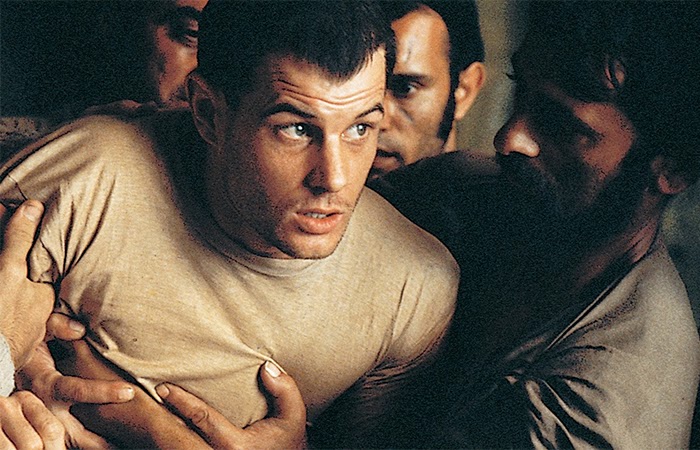
Stone won his first Academy Award for his work on the screenplay of Midnight Express, which was based on the true story of Billy Hayes, an American drug smuggler who unjustly suffered for an extended period of time in the Turkish prison system.
Though the production was (expertly) directed by Alan Parker, Stone’s handprints, heart, bold style, heightened sensibilities, and impassioned, chaotic energy permeate the film at its core. The results are still some of the best and most powerful of Stone’s career.
7. Wall Street (1987)
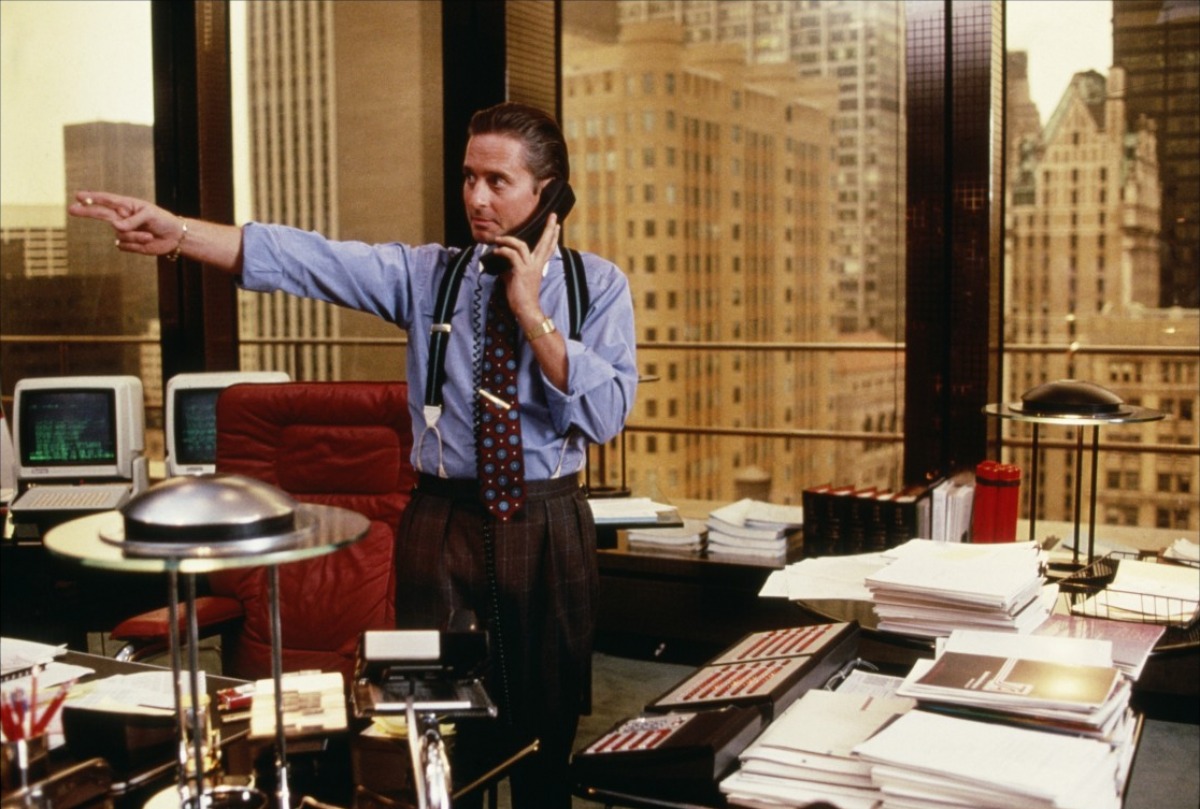
By no means the best film of Oliver Stone’s career (it’s arguably one of the worst on this list), Wall Street will always remain one of the most influential, mainly due to its presentation of the character Gordon Gekko (and a deservedly Oscar-winning portrayal of him by Michael Douglas). Gekko, like the film itself, is a symbol of eighties ambition, greed, and unethical business practices.
The only more quoted characters from the eighties were either Ferris Bueller or Tony Montana (and we’ll get to him in a bit). “Greed is good” was a condemnation that popular culture treated like a celebration.
Stone’s depiction of Gekko and the public’s subsequent love of his sociopathic business ethics more than proved his almost satiric point with the character in the first place: selfishness and excess were a plague in the eighties, so much so that a film depicting it without a hint of subtlety became a pop culture sensation because no one really got the joke (or the criticism) it represented.
6. Nixon (1995)

Like W., Nixon is a downright shockingly empathetic portrayal of a very disliked former US President (in this case, and quite obviously, Richard Nixon). It’s even more shocking considering that it came from Oliver Stone, perhaps the world’s most famous (not to mention angriest) Vietnam veteran of all time. Unlike W., however, Nixon is still thunderously and chaotically charged, and the results are something resembling grand Shakespearean tragedy in Stone’s hands.
Featuring a brilliant lead performance by Anthony Hopkins, Nixon was Stone’s (to date) last truly great film, one that provoked with thought, maturity, and grace. The results were unlike anything Stone had accomplished before and undoubtedly better and more complex than anything he has accomplished since.
5. Born on The Fourth of July (1989)
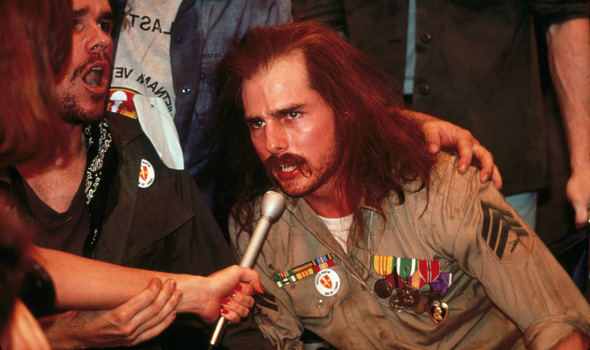
Something of a spiritual sequel to Platoon, Born on The Fourth of July continued Stone’s exploration of the American side of the Vietnam War. Based on the real-life story of Ron Kovic, an all-American kid who lost his innocence and the use of his legs during the war, Born on the Fourth of July is Stone at his most hard-driving yet intentionally simplistic.
The film knows it is a one-sided love letter to American veterans, and it accomplishes being so with a brutal honesty, sincerity, and power that resonates even when viewed today. It should also be mentioned that, in his gut-wrenching portrayal of Kovic, Tom Cruise (like Charlie Sheen, Michael Douglas, Kevin Costner, James Woods, and Val Kilmer) gives the best performance of career under the guidance of Stone’s unflinching and confidently bold direction.
4. Scarface (1983)
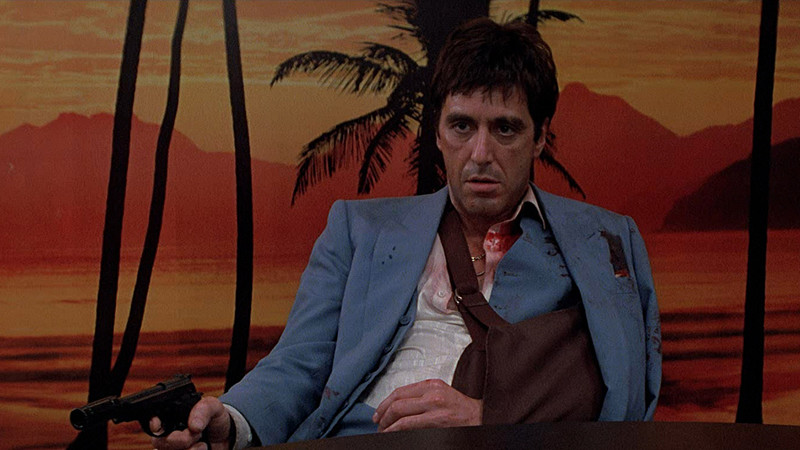
Tony Montana will more than likely always be Oliver Stone’s most renowned pop culture creation. He is the ultimate cautionary tale who is ironically celebrated for being everything but. His business ethics are quoted by world-famous rappers and his colorful dialogue challenges Tarantino at his finest.
Montana’s view of the world as his own personal stepping stone to greatness struck a chord with every ambitious individual who lived during or after the eighties American wave of materialism, capitalism, greed, excess, and blind ambition.
Scarface, which was expertly, excessively, and colorfully directed by Brian De Palma, is the ultimate satire of the eighties. When Tony Montana takes his climactic nosedive into a mountain of cocaine because he has nowhere left to go, he exposes the emptiness and absurdity of a specifically vapid culture at a specific point in time.
Like Wall Street, however, everyone was just too enamored by the colorful delivery and appealing presentations of excess to fully get the joke Stone and De Palma were trying to tell with Scarface.
3. Natural Born Killers (1994)
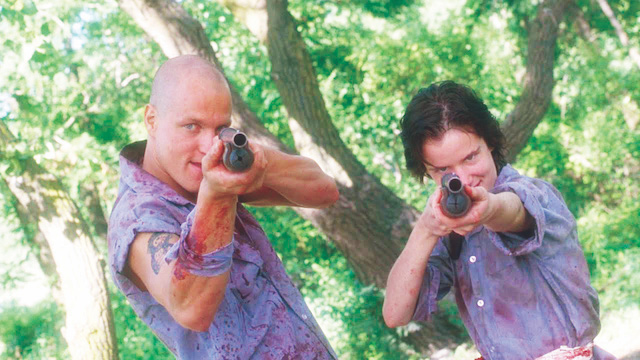
Speaking of Oliver Stone films whose points were completely missed, one was perhaps never so misunderstood (or, more accurately, miscommunicated) than Oliver Stone’s nineties satire on media, fame, violence, and dysfunction, Natural Born Killers. Based on an early Quentin Tarantino script, Stone created a chaotic joyride that is both delusional and self-aware in its attempts to vilify the excess, violence, and sensationalism it depicts.
In order to work as a film and to make the point that it attempts to communicate, Natural Born Killers needs to be as entertaining, adrenaline-inducing, and violence-fetishizing as it is… But the downside and the cost of its psychotic greatness is that its intentions are so easily lost in the amplifications of sex and violence it basks in while simultaneously condemning.
Natural Born Killers is Oliver Stone at his most unchained. It is a masterpiece of emotional confusion, a satire of a psychotic time, and a daring presentation of Stone’s own personal demons. The resulting film is an experience that is as cathartic (though potentially dangerous) for it’s audience to witness as it undoubtedly was for its director to create.
2. JFK (1992)
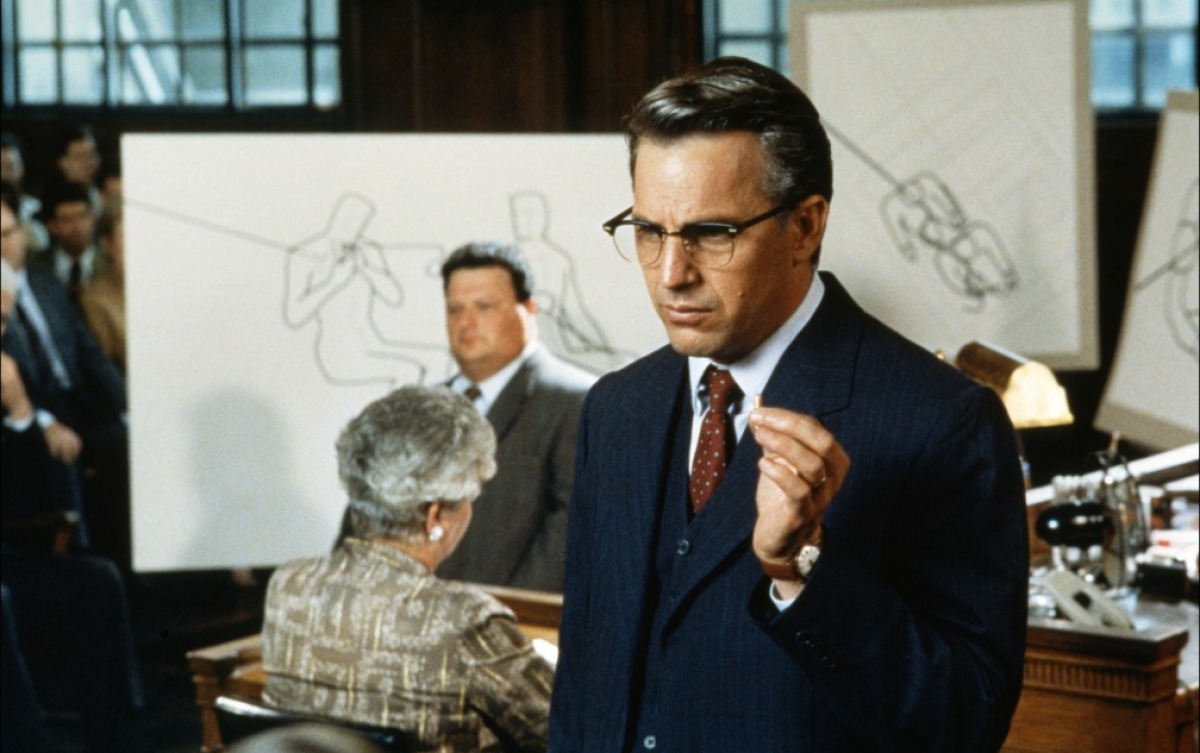
After taking note of the liberal observations, radical ideologies, and boldly-written political monologues delivered by deeply committed (or possibly, under Stone’s influence, frightened) actors that often appear in his films, it is just as important to note Stone’s contributions to the technical side of filmmaking when discussing his work as a whole.
His influences on cinematography, editing, and musical accompaniment in modern filmmaking are just as profound and noteworthy as his tendency to provoke and stir up uncomfortable emotions in his films. The latter quality just tends to get a lot more attention than the former.
JFK is unquestionably Oliver Stone’s greatest accomplishment as both a cinematic provocateur and as a technical magician, neither of which is a small feat. Centering around Jim Garrison’s controversial investigation into the possible conspiracy surrounding Kennedy’s 1963 assassination, JFK is as much a masterwork of paranoia and discovery as it is a master class in photography and experimental editing techniques.
Told in a fractured, hyper-cut, multi-formatted style that successfully and clearly communicates depictions of past, present, fact, fiction, reality, and fantasy, JFK is a cinematic accomplishment that belongs in the same category of appreciation and admiration as Citizen Kane, Vertigo, 2001, The Godfather, Goodfellas, or Pulp Fiction.
Regardless of how you feel about the controversial questions it raises about American history, there is no denying Stone’s brilliance as a director or the heights of cinematic innovation he accomplished with his work on JFK.
1. Platoon (1986)
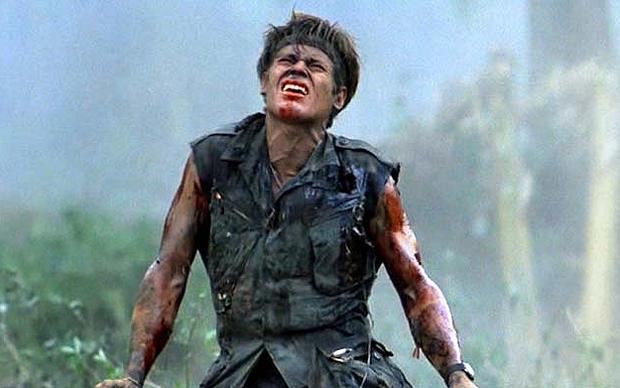
Platoon may not be the most technically refined or best-written film of his career (in spite of winning multiple Academy Awards in almost all of the categories that would suggest otherwise), but it will always be his most personal, and it will always contain a number of “firsts” for his fantastic filmography and career.
It was the first time his influence and cinematic power truly took the world by storm (landing his own Vietnam experiences in a Time cover story, personally bringing about a whole new respect for the Vietnam veteran in America), it was the first time he made a film about the Vietnam War, it was the first time his talents as a filmmaker were truly recognized and rewarded, and it was the first time we all took notice of a filmmaking force that was rare, raw, extreme, and impossible to deny. It was also, most importantly and simply said, the first time Oliver Stone made a great movie.
Platoon was a major accomplishment for Stone. It was shot on a very limited budget, it was a script that had been floating around Hollywood (and seemed destined forever be a “great unmade”) for years, and it was about a subject and a war that was about as unpopular (especially when portrayed with any form of realism above a Rambo-like cartoon) as you could get.
Yet Stone, against all odds, somehow managed to make a moving, beautiful, thrilling, involving, and deeply personal film about his wartime experiences. Most astonishingly, it somehow resonated with the world and became a financial and cultural sensation that paved the way for both open-minded thought about the war in Vietnam and the career to come for it’s audacious and highly talented writer-director.
Oliver Stone fought, kicked, and clawed his way into one of the world’s most competitive industries and ultimately won when he made Platoon. When he got to the point that very few ever make it to in Hollywood, he went even further by proving he had a lifetime of experiences, a wealth of creativity, and a heap of talent to help create more of the most innovative, provocative, and resonating films ever produced in America. And it all started, though certainly did not end with, his masterful ode to the loss of his own innocence that is Platoon.
Author Bio: Matt Hendricks is an independent filmmaker with several projects currently in development.